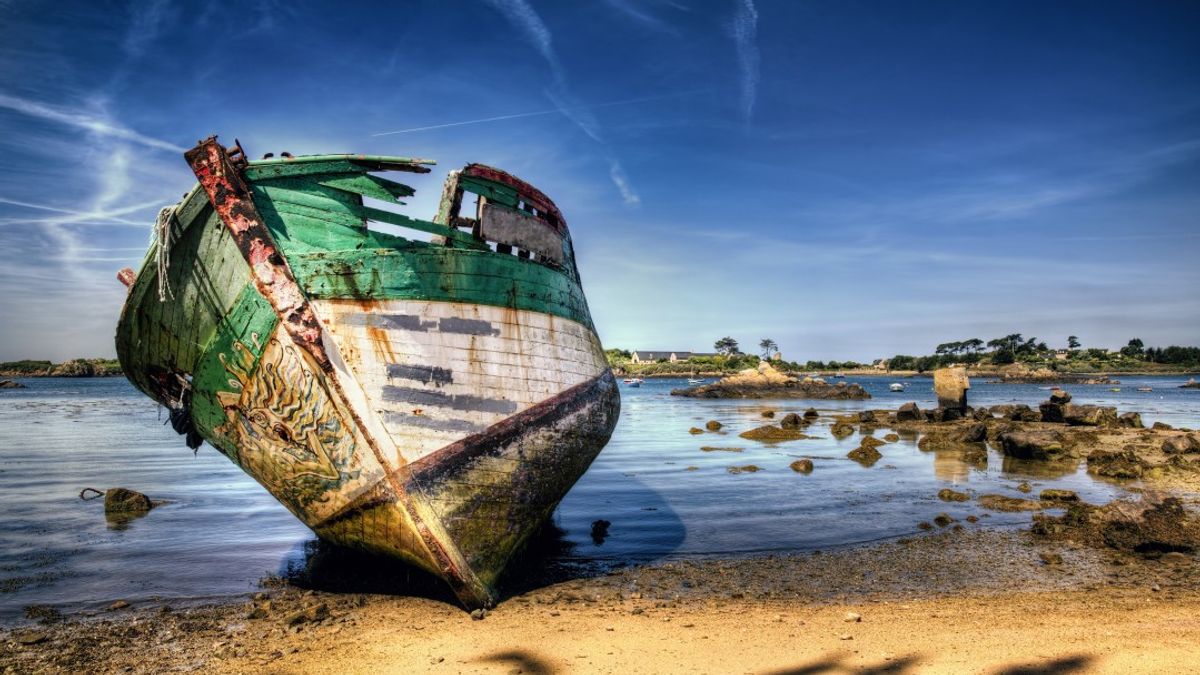Shipwrecked or Cruisified?

Expensive Floats
Waste
Emissions
Tax Shelters
And they want a bailout?
Nobody in their right minds would want to go on cruises after the hell passengers have had to endure. The debacles on the Grand Princess, Diamond Princess and others due to the COVID-19 outbreaks have left people the world over with a very different vision of what a cruise experience can be.
Expensive Floats
These floating luxury hotels, as shiny as they are on the outside, have some dirty little secrets that need to be addressed.
Workers. Most of the cruise-ship workers are from Southeast Asia, Latin America, the Caribbean, and Eastern Europe. Not only are they underpaid, but they also are overworked and malnourished (surviving on leftovers in some cases), living in cramped, unhygienic conditions on-board. This is not short of human rights abuse. The law regarding the sea, including what we would today characterize as the municipal law of admiralty, is as old as humanity's use of the sea. Appallingly, cruise-ship companies pay little heed to this!
Transnational law violations and human rights abuse go unchecked at sea!
Waste
A ship traveling for one week with 3,000 passengers and crew can generate 210,000 gallons of sewage, 1 million gallons of gray water (from showers and sinks), more than 130 gallons of hazardous waste, up to eight tons of solid waste, and 25,000 gallons of water contaminated with oil residues. Before this industry came to a grinding halt, 265 ships run almost every day of the year carrying an average of 1,200 passengers. This raw sewage and hazardous waste goes straight into the ocean, without any waste treatment.
Environmental damage is a mere cost of doing business for this industry and a serious problem that needs to be fixed!
Emissions
Cruise ships burn heavy fuel oil (HFO), which is the dirtiest fossil fuel available. it is a toxic sticky substance that if spilled would devastate the marine environment. Most of these ships also do not have any diesel particulate filters or selective catalytic converters to clean the exhaust – technologies that are standard for road vehicles like trucks. Currently, heavy fuel oil contains 35,000ppm sulfur, which is 3,500 times more polluting than road diesel. The standard in the sulfur emissions control areas is 1,000ppm.
Carbon-neutrality is a pipe dream for this sector!
These violations are against the International Maritime Organization (IMO) regulations that were adopted to address the emission of air pollutants from ships. In 2017 for example, luxury cruise brands owned by Carnival Corporation & PLC emitted 10 times more disease-causing sulfur oxide (SOx) in European seas than all of Europe’s 260 million-plus passenger vehicles. Ship SOx emissions will still remain considerably large compared to the passenger car fleets even after the introduction of the global 2020 marine sulfur cap. Also of concern are nitrogen oxide (NOx) emissions, which go unchecked.
Tax Shelters
Now let's address some neat financial engineering that goes on in this business. Cruiseline companies are domiciled outside of the US. The three top cruise-ship operators Carnival, Norwegian, and Royal Caribbean are incorporated in Panama, Bermuda, and Liberia. The legal and tax construct adopted by these countries imposes no income, corporate, capital gains or estate taxes on corporations and entities housed in their jurisdiction, but conducting businesses expressly outside of their jurisdiction. These offshore companies are charged a joke of an annual franchise tax of $300 payable to the government. The tax haven status is borderline sketchy as was portrayed in the leak of classified documents from Panama, notoriously dubbed the "Panama Papers".
Does anyone remember the Panama Papers from Mossack Fonseca?
The report throws light on practices that are not necessarily illegal, but they do raise questions about the kinds of legal tax-avoidance services available to the companies housed there as well as the world’s rich and draw attention to Panama and other countries that allow such practices to flourish.
“When it comes to money laundering, we offer full service: rinse, wash, and dry.”
- Miguel Antonio Bernal
And they want a bailout?
I mean, WTF? They don't operate in the US, don't pay US taxes, get away with not hiring US workers and now they want a bailout from the US government?
They want US taxpayers to bail them out!
You decide, but this industry ought to be ship-wrecked. They ought to pay the price, not the US taxpayers! The stimulus bill is addressing this and hopefully will make the right call.
If they want to make a come-back, cruise operators need to restructure, mend their ways of doing business and reposition themselves as cleaner operators - financially, environmentally and ethically.
Share This